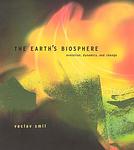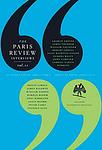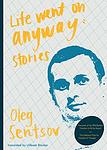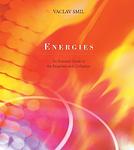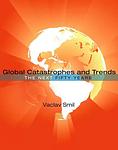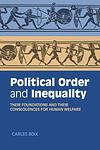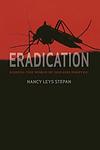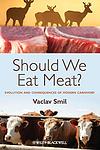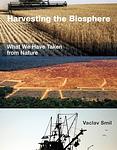The Greatest Czech, Unknown "Nonfiction" Books Since 2000
Click to learn how this list is calculated.
This list represents a comprehensive and trusted collection of the greatest books. Developed through a specialized algorithm, it brings together 300 'best of' book lists to form a definitive guide to the world's most acclaimed books. For those interested in how these books are chosen, additional details can be found on the rankings page.
Genres
Countries
Date Range
Reading Statistics
Click the button below to see how many of these books you've read!
Download
If you're interested in downloading this list as a CSV file for use in a spreadsheet application, you can easily do so by clicking the button below. Please note that to ensure a manageable file size and faster download, the CSV will include details for only the first 500 books.
Download-
1. E=Mc2 by David Bodanis
The book provides a layperson-friendly explanation of the world's most famous equation, delving into the history, science, and people behind its development. It explores the biographies of the scientists who contributed to our understanding of energy and mass, including the equation's originator, and the practical and philosophical implications of the equation's assertion that energy and mass are interchangeable. The narrative also discusses the equation's role in the development of atomic energy and its impact on modern physics, offering an accessible journey through the annals of scientific thought and the revolutionizing discoveries that shape our understanding of the universe.
-
2. The Earth's Biosphere by Vaclav Smil
This book provides a comprehensive overview of the Earth's biosphere, exploring the complexity and resilience of life on our planet. It delves into the intricate relationships between the biosphere's various components, including ecosystems, organisms, and the physical environment, while also examining the impact of human activities on these natural systems. The author synthesizes a vast array of scientific knowledge to present a detailed yet accessible understanding of how the biosphere functions, its evolutionary history, and the critical challenges it faces in the modern era. Through this exploration, the book highlights the importance of sustainable practices to preserve the delicate balance of life on Earth for future generations.
-
3. An Immense World by Ed Yong
"An Immense World" is a collection of science essays written by Ed Yong, a science journalist. The book explores a wide range of scientific topics, from the behavior of animals to the complexities of the human microbiome. Yong's writing is accessible and engaging, making complex scientific concepts easy to understand for readers of all backgrounds. The essays are thought-provoking and provide a glimpse into the fascinating world of science. Overall, "An Immense World" is a must-read for anyone interested in science and the natural world.
-
4. Creating The Twentieth Century by Vaclav Smil
This book provides a comprehensive analysis of the technical innovations and scientific discoveries that fundamentally transformed the 20th century, laying the groundwork for modern society. It delves into the period from 1867 to 1914, which the author identifies as crucial years when core technologies such as electricity, the internal combustion engine, and basic chemical processes were developed. These innovations, the book argues, set the stage for the unprecedented economic growth and improvement in human well-being that characterized the 20th century. Through a detailed examination of the interplay between technological advancement and societal change, the narrative explores how these foundational developments have shaped the contemporary world, highlighting both the positive outcomes and the challenges they have brought.
-
5. The Paris Review Interviews by Paris Review
The book is a collection of in-depth, personal interviews with some of the greatest literary minds of the 20th century. It provides a unique insight into their creative processes, inspirations, and struggles. The discussions delve into their thoughts on the craft of writing, their individual approaches to storytelling, and the personal experiences that have shaped their works. This book is a valuable resource for aspiring writers and literature enthusiasts alike.
-
6. Global Health by Ann Lindstrand
This book provides a comprehensive overview of global health, addressing the key issues, challenges, and strategies involved in improving health outcomes worldwide. It delves into the determinants of health, the burden of diseases, and the complex interplay between health, economic development, and social factors. The text emphasizes the importance of a multidisciplinary approach, incorporating perspectives from epidemiology, public policy, and international relations, to tackle the global health disparities and pave the way towards achieving equity in health for all populations. Through case studies and analysis of current trends, the book offers insights into the roles of various stakeholders, including governments, NGOs, and the private sector, in advancing public health goals on a global scale.
-
7. Life Went On Anyway by Oleg Sentsov
"Life Went On Anyway" is a powerful memoir that chronicles the life of Oleg Sentsov, a Ukrainian filmmaker who was wrongfully imprisoned by the Russian government. Through his vivid and poignant storytelling, Sentsov shares the harrowing details of his arrest, imprisonment, and the relentless fight for justice. Despite the unimaginable hardships he endures, Sentsov's resilient spirit shines through as he reflects on the power of art, the importance of freedom, and the indomitable human will to survive.
-
8. Energies by Vaclav Smil
This book provides a comprehensive exploration of the various forms of energy that power the planet, from traditional fossil fuels to renewable sources like wind and solar power. The author delves into the scientific principles underlying energy conversion, storage, and transmission, offering insights into the complexities of energy systems and their impacts on the environment and society. Through a detailed analysis, the book presents a balanced view on the challenges and opportunities of transitioning to a more sustainable energy future, emphasizing the need for informed policy decisions and technological innovations.
-
9. Global Catastrophes And Trends by Vaclav Smil
This book provides a comprehensive analysis of the major natural and human-induced disasters and trends that have the potential to significantly alter the course of human civilization. It delves into a wide array of topics, from environmental degradation and climate change to the risks of nuclear warfare and pandemics, offering a detailed examination of their causes, impacts, and the likelihood of their occurrence. The author meticulously assesses the probability and severity of these global challenges, combining scientific research with historical context to evaluate how they might shape the future. Through a blend of rigorous analysis and insightful commentary, the book aims to enhance our understanding of the complex dynamics that govern our world and the potential pathways to mitigate these global risks.
-
10. Political Order And Inequality by Carles Boix
This book delves into the intricate relationship between political dynamics and social inequalities, offering a comprehensive analysis of how political institutions shape economic disparities and vice versa. The author argues that the formation of political order and the distribution of resources within a society are deeply interconnected processes, influenced by historical events, economic pressures, and power struggles. Through a detailed examination of various political systems and historical contexts, the book presents a theoretical framework for understanding the mechanisms through which political stability and inequality are mutually reinforced, suggesting that the path to a more equitable society lies in the careful restructuring of political institutions to address the root causes of inequality.
-
11. Energy Transitions by Vaclav Smil
This book provides a comprehensive analysis of the historical shifts in energy sources and consumption patterns, from traditional biomass to fossil fuels and the potential future transition to renewable energy sources. It examines the technological, economic, and environmental challenges associated with these energy transitions, emphasizing the complexity and duration of these shifts. The author argues that while transitions to more efficient and less environmentally damaging energy sources are necessary, they will be gradual and require significant technological innovations and societal adaptations. Through a detailed exploration of past and present energy systems, the book offers insights into the future of global energy consumption and the path towards a more sustainable energy landscape.
-
12. Energy Myths And Realities by Vaclav Smil
In "Energy Myths and Realities," the author critically examines the widespread misconceptions surrounding energy and its future. Through a rigorous analysis of data and trends, the book debunks popular myths about the potential of renewable energy sources, the pace of energy transitions, and the feasibility of achieving rapid changes in energy systems. It emphasizes the complexity of energy production and consumption, arguing for a more nuanced understanding of energy realities. The author advocates for realistic expectations and pragmatic approaches to energy policy and innovation, cautioning against the dangers of oversimplification and the allure of quick fixes in the discourse on energy sustainability and security.
-
13. Native American Folktales by Thomas A. Green
This book is a collection of traditional stories, myths, and legends from various Native American tribes. It explores the rich cultural heritage, beliefs, and customs of indigenous peoples through their oral storytelling tradition. The tales cover a wide range of themes including creation stories, tales of tricksters, moral lessons, and accounts of historical events. The book provides a unique insight into the spiritual and cultural life of Native Americans.
-
14. Eradication by Nancy Leys Stepan
This book provides a comprehensive examination of the concept and practice of disease eradication from a historical perspective. It delves into the scientific, ethical, and political dimensions of the global efforts to eliminate diseases, focusing on case studies such as smallpox, malaria, and polio. The narrative critically assesses the successes and failures of these campaigns, highlighting the complexities and challenges involved in attempting to wipe out diseases. Through a detailed analysis, the book explores the implications of eradication efforts on public health policies and practices, questioning the feasibility and desirability of pursuing eradication as a goal in the face of evolving disease dynamics and global health landscapes.
-
15. Sustainable Materials by Julian M. Allwood
This book provides a comprehensive exploration into the world of sustainable materials, focusing on the environmental impact of material production and usage. It delves into the science and engineering behind creating materials that are not only durable and functional but also minimize harm to the environment. Through a detailed analysis of various materials, the book offers insights into how industries can shift towards more sustainable practices. It emphasizes the importance of reducing material consumption, recycling, and reusing resources as key strategies for achieving sustainability. The book serves as a crucial resource for engineers, designers, policymakers, and anyone interested in the sustainable development of materials and its significance for the future of the planet.
-
16. Should We Eat Meat? by Vaclav Smil
This book provides a comprehensive examination of the role of meat in human diets and its impact on health, the environment, and society. It delves into the history of meat consumption, explores the ethical considerations surrounding animal farming, and analyzes the environmental consequences of meat production, including greenhouse gas emissions and land use. The author presents a balanced view, weighing the nutritional benefits of meat against its ecological footprint and considering sustainable alternatives. Through a detailed and scientific approach, the book encourages readers to ponder the complex question of whether the consumption of meat is justifiable in the modern world, offering insights into possible future directions for global dietary practices.
-
17. The Great Escape by Angus Deaton
This book delves into the historical journey of human progress, particularly focusing on how health and prosperity have evolved over time to create significant disparities in wealth and well-being across different populations. It examines the mechanisms of growth and the spread of prosperity, alongside the challenges and inequalities that have emerged. Through a detailed analysis, the narrative explores the roles of technology, innovation, and government policies in shaping the economic landscapes and the distribution of resources. The author critically addresses the complexities of escaping poverty and the ethical considerations surrounding aid and intervention in less developed economies. The work is a comprehensive exploration of the global patterns of health, wealth, and inequality, offering insights into the potential paths toward a more equitable world.
-
18. The Bet by Paul Sabin
This book delves into the high-stakes wager between two influential figures, an economist and a biologist, who held opposing views on the future of global resources and population growth. Set against the backdrop of the latter half of the 20th century, the narrative explores the broader debate on environmental policy, economic growth, and the limits of Earth's resources. Through the lens of this famous bet, the author examines the impact of their clash on public discourse and policy, highlighting the complexities of predicting the planet's environmental future. It serves as a fascinating case study on how scientific debates can influence political and public opinion, and the challenges of balancing resource sustainability with human progress.
-
19. Harvesting The Biosphere by Vaclav Smil
This book provides a comprehensive examination of the human impact on Earth's biosphere, focusing on the extraction and exploitation of biological resources. It delves into historical and contemporary practices of harvesting plants and animals for food, fuel, and raw materials, quantifying the scale and intensity of these activities. The author meticulously analyzes how these practices have evolved over time and assesses their sustainability and environmental consequences. By offering a detailed account of the biosphere's transformation under human influence, the book presents a critical perspective on the limits of resource utilization and the urgent need for adopting more sustainable practices to ensure the long-term viability of our planet's ecosystems.
-
20. When We Cease To Understand The World by Adrian Nathan West, Benjamin Labatut
"When We Cease To Understand The World" is a collection of two novellas that explore the limits of human knowledge and the consequences of scientific discovery. In "The Immaculate Void," a mathematician becomes obsessed with solving a seemingly unsolvable equation and risks his sanity in the process. In "The Unfinished," a group of scientists race to unlock the secrets of nuclear fission, only to realize the devastating power they have unleashed. Through these stories, the authors question the role of science in society and the dangers of pursuing knowledge without considering its ethical implications.
-
21. Exoplanets And Alien Solar Systems by Tahir Yaqoob
"Exoplanets and Alien Solar Systems" provides a comprehensive overview of the field of exoplanet research, exploring the methods used to discover and study planets beyond our solar system. The book delves into the various types of exoplanets discovered, the characteristics of these distant worlds, and the implications for understanding our place in the universe. It also discusses the technological advancements and scientific principles underlying exoplanet detection and analysis, offering insights into future prospects and challenges in the field. This work serves as both an informative guide for those new to astronomy and a detailed resource for seasoned researchers interested in extraterrestrial planetary systems.
-
22. Figuring by Maria Popova
"Figuring" explores the complex interconnections between the lives of several historical figures across four centuries, primarily focusing on women who have made significant contributions to science, art, and culture. The narrative weaves together the personal and professional endeavors of these individuals, highlighting their struggles, relationships, and the societal challenges they faced. The book delves into themes of love, discovery, and the pursuit of knowledge, illustrating how these elements are intertwined in the human experience and how the contributions of these figures have shaped our understanding of the world.
-
23. Trans by Juliet Jacques
"Trans" is a candid and poignant memoir that chronicles the personal journey of transitioning from male to female, exploring the complexities of gender identity and the challenges faced by transgender individuals. The author offers an intimate look into their experiences with gender dysphoria, the medical processes of transitioning, and the social implications of living as their true self. The narrative also delves into the broader cultural and political issues surrounding trans rights and representation, providing a nuanced perspective on the intersection of personal and political in the quest for authenticity and acceptance in society.
-
24. Energy And Civilization by Vaclav Smil
This book provides a comprehensive examination of the role that energy has played in the development of human societies, from the harnessing of fire by early humans to the complex energy grids of the 21st century. It explores how the transformation and consumption of energy have been pivotal in the advancement of civilizations, underpinning economic systems, technological progress, and the rise and fall of empires. The author meticulously analyzes the transition from muscle power to fossil fuels and renewable energy sources, highlighting the environmental and societal impacts of our growing energy demands. Through a detailed historical and scientific lens, the narrative underscores the critical importance of energy management in addressing current global challenges, advocating for a more sustainable and efficient future.
-
25. The Age of Surveillance Capitalism by Shoshana Zuboff
The book explores the emergence of surveillance capitalism, a new form of capitalism that thrives on personal data. The author details how tech companies, such as Google and Facebook, collect and use personal data to predict and modify human behavior as a means to produce revenue and market control. The book delves into the consequences of this phenomenon on economy, society, and democracy, warning about the dangers of unchecked data collection and manipulation.
Reading Statistics
Click the button below to see how many of these books you've read!
Download
If you're interested in downloading this list as a CSV file for use in a spreadsheet application, you can easily do so by clicking the button below. Please note that to ensure a manageable file size and faster download, the CSV will include details for only the first 500 books.
Download
